It’s a beautiful summers day in Margate and a young couple are celebrating happy news by quaffing champagne and oysters on the seafront. Three streets back, a homeless man sits slumped in the street beneath a boarded up Poundland.
This, locals say, is their home town in a nutshell and they’ve had enough.
Thanks to its beautiful location, nestled right on the horn of Thanet in sunny Kent, the town has always been a popular spot for day trippers seeking sun, sand and serenity.
It is is no different to other seaside towns in that it experienced its hay day way back when King George VI was still on the throne and doctor’s genuinely believed a spot of sea air could cure things like cancer and emphysema.
Morrisey, once whined about his life being like ‘the coastal town they forgot to close down, the seaside town they forgot to bomb.’
And whilst nobody would argue with the controversial singer’s own reflection of his career, he does touch on a sad but common assessment of UK seaside spots following the boom times.
That they are sad, depressing places. Steeped in generations of irreversible decline and all but abandoned by the government who secretly hope climate change will drag them into the sea.
Why then, does Margate remains something of an enigma in the public imagination? It has always had a sexier reputation than say Southend, after being immortalised in the Only Fools and Horses Jolly Boys Outing the hit Chas and Dave song ‘Margate.’
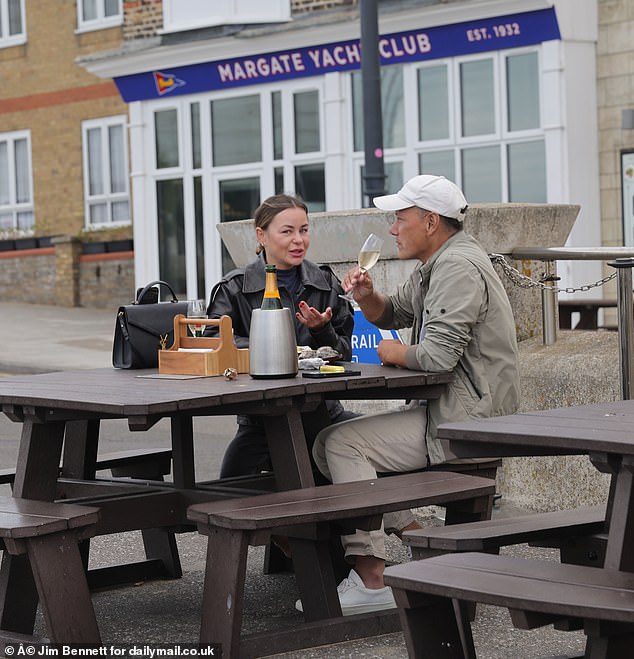
Trendy Margate is a town of two halves with some areas gentrified to the extreme
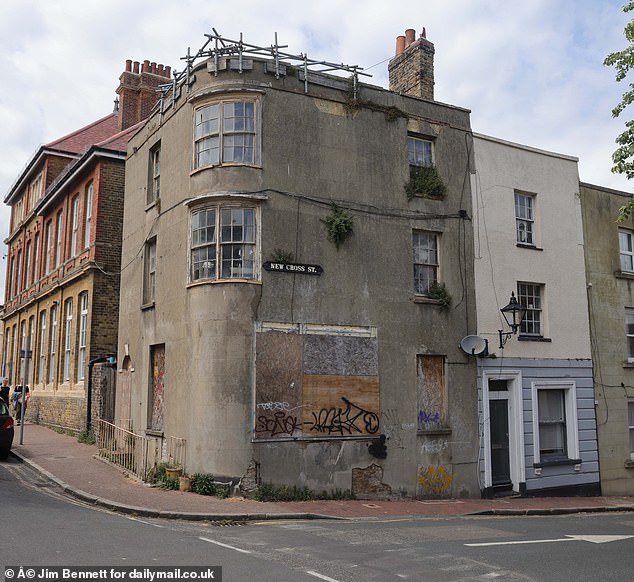
And others decaying and abandoned which residents say is more reflective of their town
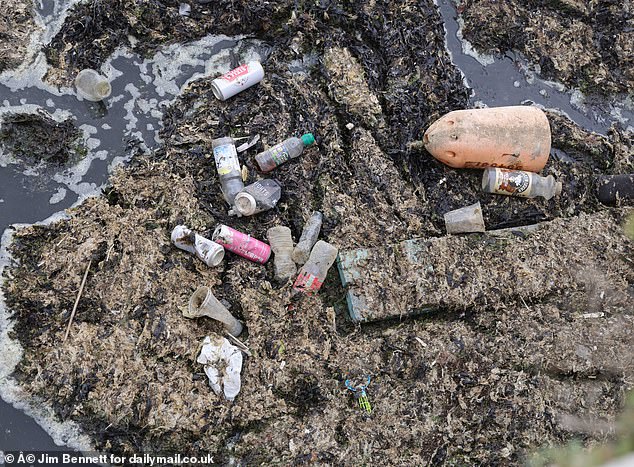
Rubbish floats on the surface of the water close to Margate’s up and coming harbour arm
But hardly any young people genuinely like Chas and Dave or Only Fools and Horses – so why are they coming? And coming in droves.
Sections of the old town are now basically East London according to the mouths of locals through gritted teeth, who say they have been forced to watch as hordes of yuppies flock about with soy lattes and pedigree dogs.
And that’s just the day trippers! In the last ten years, property prices in the town have surged due to a DfL (down from London) boom which has seen thousands of families move down to the Kent coast.
Now residents living one road back from Britain’s most gentrified postcode say trendy day trippers are ruining their town.
Locals find it ‘astonishing’ that an area of the town has been named the place that has gentrified the most in England over the last decade.
The area is Cliftonville West and is based on a combination of household disposable income data, higher education attainment, house prices and a deprivation score.
It also takes into everything from poor health and disability rates to crime and access to services.
After enjoying decades as one of Britain’s favourite seaside destinations, Margate went into a period of decline.
But in recent years – especially post Covid – it has become a fashionable magnet for Londoners, even nicknamed ‘Shoreditch-on-Sea’.
Nearly 6,000 people from London relocated to Thanet in the three years following the pandemic.
The great boom of DFLs has given Margate a new identity, but locals fear it is merely a ‘disguise’ for what is really going on.
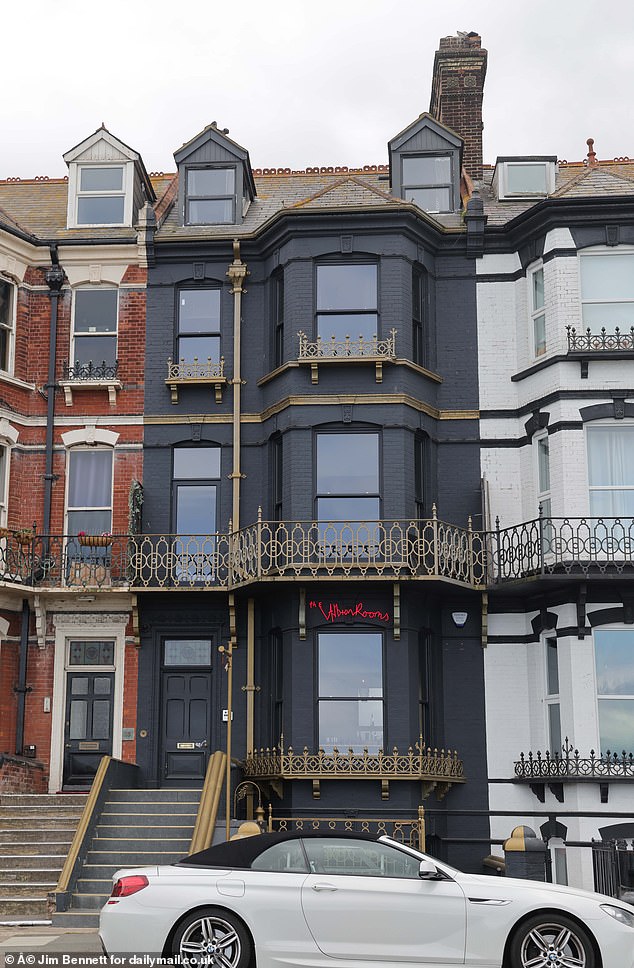
The Libertines have opened a boutique hotel in Cliftonville in the latest example of gentrification
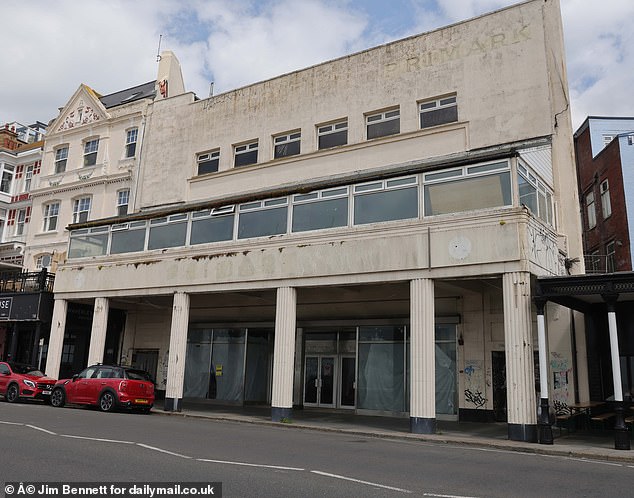
A derelict department store lays empty on Margate’s main promenade
Pauline Kirkwood, 72, who has lived in Margate for 50 years, said locals had been ‘abandoned’.
The retired shop worker said: ‘There’s a lot of noise about everyone coming down from London and it all being a great thing. They bang on about the new cafe’s, art galleries and how it’s trendy.
‘But it’s just driven up the house prices of the homes around here, making it much harder for locals to buy. People who have lived here all their lives can’t afford to buy. So they rent or have to rely on the council, even though they work. It’s really sad.
‘Surely they should be the priority? There are also deep routed issues here. It’s rough. You can make it look as nice as you want but I feel more unsafe now than in the last 50 years of living here.
‘So what’s being done about that? If you go one street away from the coast, there’s drug dealing and drug taking everywhere.
‘People are hammered quite often and causing big problems. This is in the day.
‘It’s scary.’
Pauline said many people who have moved only stay at weekends, creating more problems.
She added: ‘It can be dead in the week and absolutely rammed at weekends. There’s always been a big need for tourism and that’s really important.
‘But it doesn’t feel like a holiday destination anymore and doesn’t have that seaside feel.’
Reacting to the gentified news, Pauline, who lives in Cliftonville, said: ‘That’s astonishing. Tell that to locals and people who have lived here for years. They won’t have seen the improvement they are on about.’
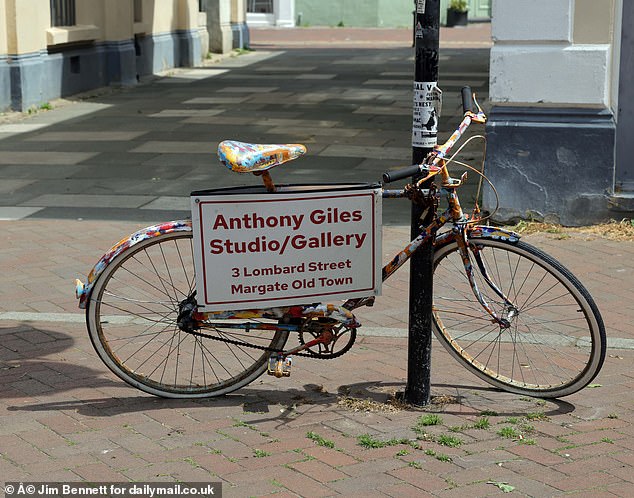
An artist advertises their new gallery in Margate’s trendy old town
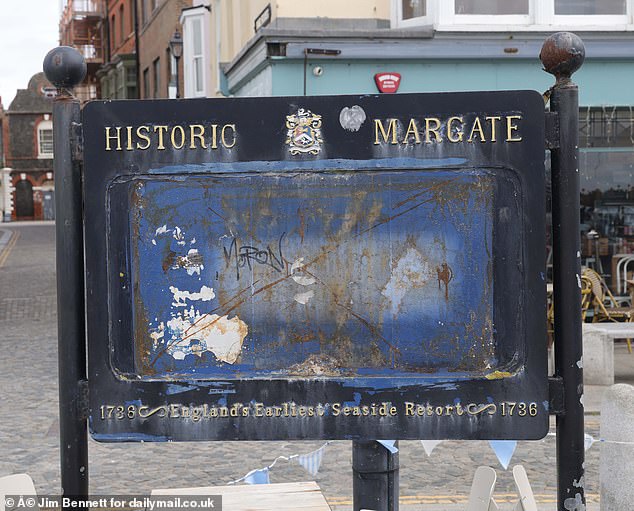
Yards away a sign advertising the town as ‘England’s earliest seaside resort’ is filthy
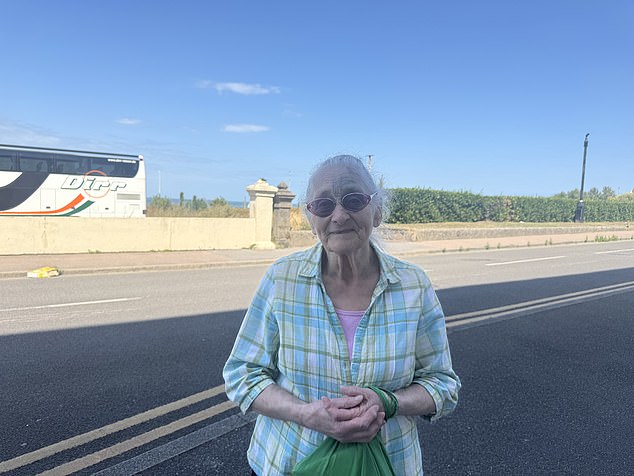
Kate Stuart, 85, who originally moved herself to Margate from London 14 years ago, thinks the influx of people has had a negative impact
Another local, who refused to give his name, questioned the title, saying: ‘You’re figures are wrong there mate. Have you seen it? It is a complete dive and always has been!’
Kate Stuart, 85, who originally moved herself to Margate from London 14 years ago, thinks the influx of people has had a negative impact.
She said: ‘I didn’t move because I wanted to be trendy. I moved because I had nowhere else to go really. It was all I could afford.
‘They are now coming here because they like it and they want to change it.
‘I think it’s gone too far. The people who have moved don’t have a lot of consideration for those who have been here years.
‘I have a lot of friends with children and grandchildren here, but they would not be able to afford to live here now and get a house.’
Kate also said there had been a lack of respect shown towards the town.
She added: ‘The newer residents quite often play loud music and cause problems on the beach. They blast it out of their phone speakers. It’s really annoying.
‘That never used to happen. There’s just a lack of consideration for others now.’
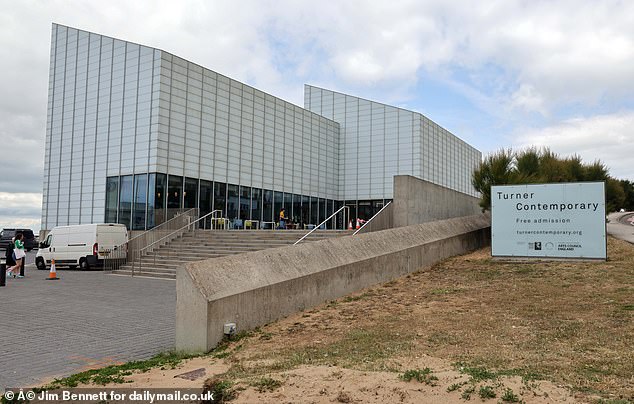
The phenomenon plaquing Margate is not an uncommon one
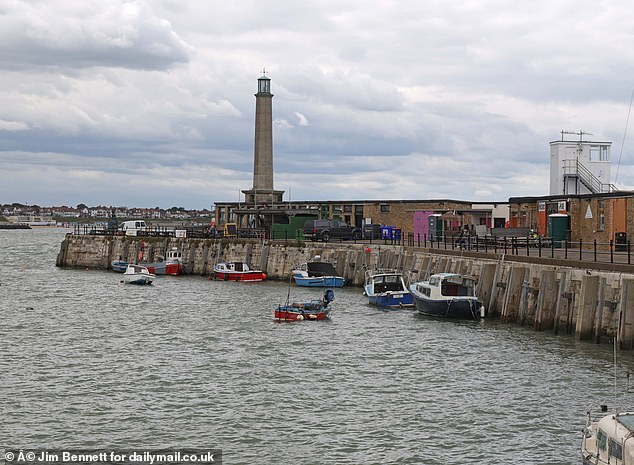
In 2021, an LSE study found that Margate is particularly rife for something known as ‘poverty-based polarisation’
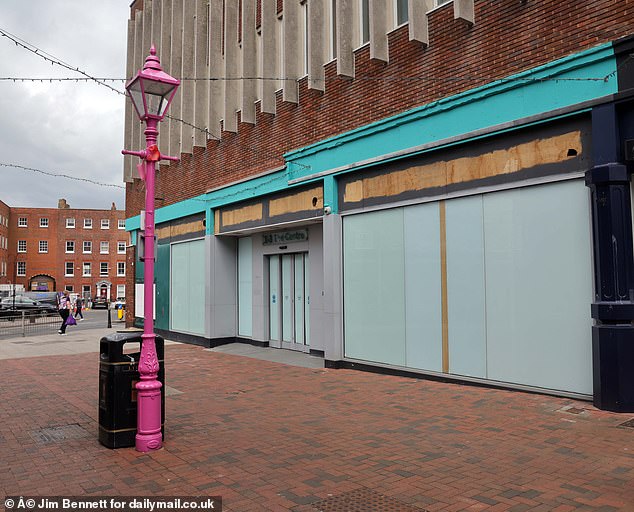
This means that everyone is either mega rich or mega poor with no in-between
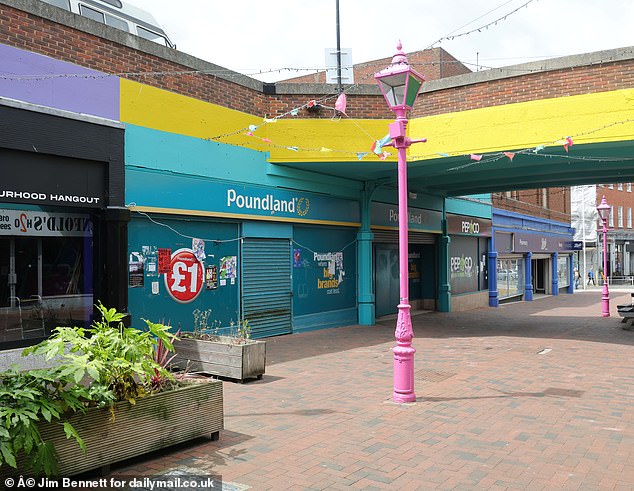
These days, even shops like Poundland can’t survive in the town
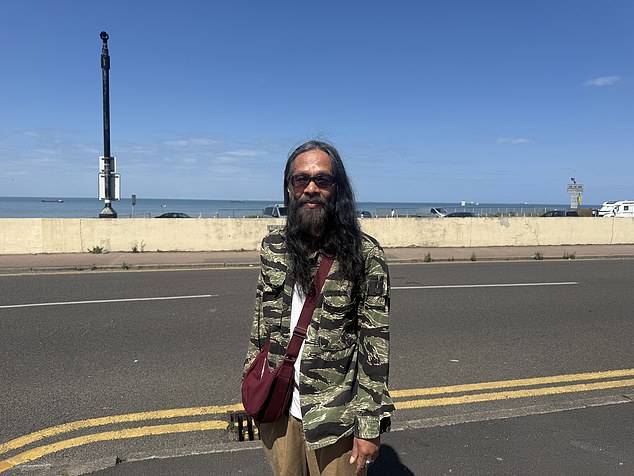
Adil Darik, 60, moved in 2020 from London, and said he ‘loves life’ in Margate
The phenomenon plaquing Margate is not an uncommon one.
In 2021, an LSE study found that Margate is particularly rife for something known as ‘poverty-based polarisation’ – in which everyone is either mega rich or mega poor with no in-between.
And the data backs this up. Since 2000, the average house price in the town has soared from £73,644 to £317,451 – a rise of £243,807.
Jerry Wright, 72, said he believes Margate has become a ‘victim of its own success’.
The retired scaffolder said: ‘In a way it’s great what’s happened. But the gap between locals and the newer residents is getting bigger and bigger and that is not good.
‘Margate is losing its identity. I have lived here 30 years and it does not feel the same. Yes, it’s very gentrified. There’s some lovely places.
‘But there’s poverty. There’s clearly an issue with substance abuse among some people which you see in public. What’s being done about that?’
Adil Darik, 60, moved in 2020 from London, and said he ‘loves life’ in Margate.
The DJ said: ‘I just got fed up of London and wanted a change. I moved when it was safe to do so after the first wave of Covid.
‘I got a seafront place at a bargain price of £100,000. I spent £60,000 on it and it’ll now be worth considerably more.
‘I had lived in Primrose Hill in north London but wanted to go by the sea. I think it’s brilliant that more people have followed. It’s given it a new lease of life.
‘Loads of tourists come and spend money and there’s loads of new businesses.
‘It would have died without the newcomers.’












